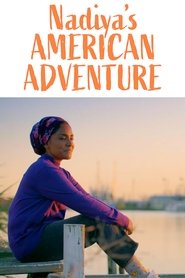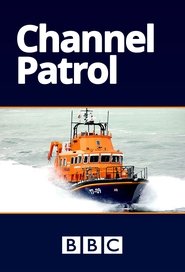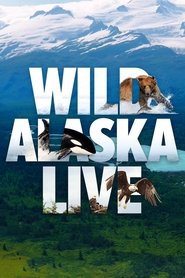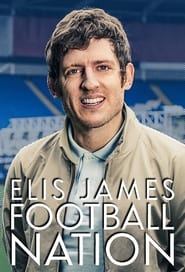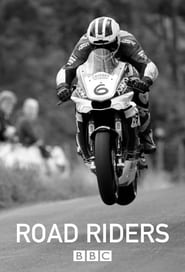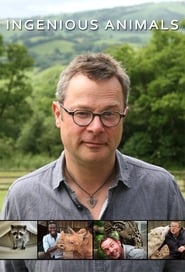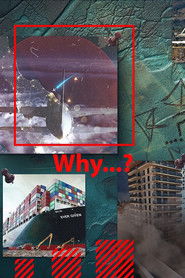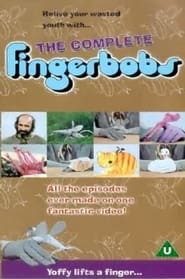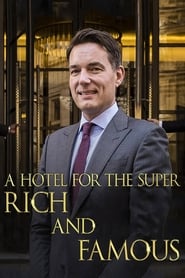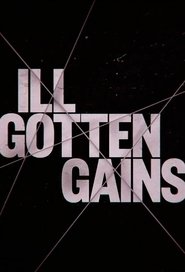Bbc One TV Series - Page 103
-
Nadiya's American Adventure
2020
Nadiya Hussain travels to the USA to explore some of the most vibrant food on earth. -
Finding Our Fathers: Lost Heroes of World War II
2016
Two women embark on a harrowing journey to discover the fate and final resting place of loved ones snatched by the Nazis. -
For Richer...For Poorer
0000
For Richer...For Poorer was a 1975 BBC television pilot starring Harry H Corbett as Bert, a union shop-steward who worships Stalin and has dreams of becoming a major politician. Part of a Comedy Playhouse season, this one-off was broadcast on BBC1, on Wednesday 25 June 1975. The show had many overlaps with Til Death Us Do Part. It had the same writer and producer. Both shows took their titles from the traditional wedding vows, and Bert was seen as the left-wing equivalent of Alf Garnett. The show is missing from the television archives. -
Channel Patrol
2014
Channel Patrol
2014
Documentary series following the lives of those that use the English Channel for pleasure, those that earn a living from it, and most importantly those who keep it safe. -
Wild Alaska Live
2017
star 1.5The cameras are turned on a must-see natural spectacle that plays out across the vast Alaskan wilderness, where some of the world’s most remarkable animals – bears, wolves, moose, orcas and eagles – gather by the thousands to take part in Alaska’s summer feast, an event never before captured live on television. -
Elis James: Football Nation
2021
star 8Elis James takes us on a fan's-eye journey through the highs and lows of Welsh footballing history in the company of some of the game's best-known players, managers and supporters. -
The Legenderrys
2013
The Legenderrys
2013
Following Derry city bursary winners as they participate in the various stages of the Clipper Round the World Yacht Race -
That Puppet Game Show
2013
That Puppet Game Show was a British television series hosted by Dougie Colon, which began airing on 10 August 2013 on BBC One. The show had been made by the BBC in conjunction with The Jim Henson Company and features the Miskreant Puppets from Puppet Up! in their first family-related appearance. The shows last episode aired on September 14, 2013 and did not return to finish the series after it was axed due to low viewing figures. -
Britain at the Bookies
2015
Documentary examining the winners and losers in Britain's booming gambling revolution. -
Six Nations Greatest Moments
2025
Gabby Logan and a host of legends reflect on the very best from 25 years of the world's greatest rugby tournament - from the biggest talking points to the most unforgettable games. -
Road Riders
2017
Road Riders
2017
Series that captures the lives and passions of the men, women and families who populate the extraordinary world of Irish road racing. -
Hearts of Gold
0000
Hearts of Gold
0000
Hearts of Gold is a BBC television programme devised and presented by Esther Rantzen, with Michael Groth and Carol Smillie as co-presenters. Running for six years in the 1980s and 1990s, the programme commended members of the public for their good deeds. Rantzen devised the show in 1988. The premise of the show was to commend those who had done good deeds to others. They would usually be tricked into appearing on the show using a practical joke, a device which some critics compared to Beadle's About. Journalist Bedell explains that participants "are inviegled into the studio under false pretences and presented with gold hearts on blue ribbons while they wonder where to put themselves.." The theme song was written by Lynsey de Paul. For some of its life, the show was filmed at The Fountain Studios in Wembley. -
Ingenious Animals
2016
star 8A team of wildlife experts travel the globe in search of the most surprising animal stories and reveal how and why animals do such remarkable things. -
In View
1962
-
Why...?
2022
Why...?
2022
From shark attacks to transport disasters and collapsing buildings - why do these events happen? Delve into the mysteries and science behind the stories that hit the headlines. -
BBC News at Six
0000
BBC News at Six
0000
The BBC News at Six is the evening news programme broadcast each night on British television channel BBC One and the BBC News channel at 18:00. For a long period the News at Six was the most watched news programme in the UK but since 2006 it has been over taken by the BBC News at Ten. On average it pulls in 4 million viewers. George Alagiah is currently the main presenter, presenting Monday to Thursday, while Fiona Bruce is its Friday presenter. Other BBC News presenters, including Sophie Raworth, Mishal Husain and Sian Williams also appear. In late 2007 the length of the programme was shortened from 30 minutes to 28 minutes to allow for a news summary being shown on BBC One at 7:58pm. -
The Repair Shop: Fixing Britain
2020
Jay Blades delves into the stories behind the items restored in the Repair Shop, and finds out more about the show's team of craft experts. -
Fingerbobs
1972
star 6.5The stories & adventures of Fingermouse, Scampi, Gulliver, Flash and a whole host of other puppet creatures. Each episode told a story centred around a paper finger puppet animal and typically involved collecting various items to make up another object at the end. -
A Hotel for the Super Rich & Famous
2018
Documentary series going behind the scenes at London's Corinthia hotel, looking at how it tries to stand out in a fiercely competitive market. -
Ill Gotten Gains
2016
Ill Gotten Gains
2016
Looking at how Regional Organised Crime Units and Forces are taking down Britain's criminals by confiscating their assets as 'Proceeds of Crime' and selling them at auction. Each show focuses on a proceeds of crime auction, with experts and law enforcement personnel helping us to understand more about Proceeds of Crime, the items confiscated and the crimes behind the 'Ill Gotten Gains.'
